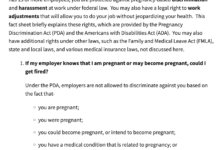Damning review finds ‘toxic’ culture at the UK nursing regulator

A “hotbed of bullying, racism and toxic behaviour” within the UK’s nursing and midwifery regulator is putting the public at risk and endangering nurses and midwives, according to a damning new report, which criticised the organisation for a range of failings.
Former chief crown prosecutor Nazir Afzal, and Rise Associates, has today published a sobering review into the culture of the Nursing and Midwifery Council (NMC), which laid bare a dysfunctional and toxic culture that was impacting safeguarding decisions at the regulator.
“The NMC requires a reset, it requires a transformation”
Nazir Afzal
It warned that the backlog of fitness to practise (FtP) cases was having a detrimental impact on staff, with good nurses being investigated for years over minor issues and bad nurses escaping sanctions because the system was not functioning properly.
The report also revealed that six nurses had died by suicide in the last year while under investigation by the NMC, which regulates more than 808,000 nursing and midwifery professionals across the UK.
The regulator has apologised and acknowledged that the findings of the review will be a “turning point”. It has accepted and agreed to implement all 36 recommendations made by the review.
These include eliminating the FtP screening backlog by 2025, ensuring complex and serious cases are processed by a specialist team and publishing an anti-racist action plan to rebuild trust with minority ethnic staff.
The review was commissioned by the NMC itself following a series of articles published in The Independent, which claimed there was a “deep-seated toxic culture” within the NMC that was leading to skewed and failed investigations at the regulator.
Over five months, Mr Afzal and Rise Associates spoke to over 1,000 current and former NMC colleagues, as well as over 200 panel members who sit on FtP hearings, to find out about their experience at the NMC and its wider culture.
Health unions and the UK’s four chief nursing and midwifery officers were also consulted as part of the review.
This investigation is believed to be the most thorough to have ever been conducted into the inner workings of the UK nursing regulator.
Mr Afzal told Nursing Times said his review painted a “bleak picture” of the NMC.
“We endured hundreds of hours of traumatic testimony and all the positive examples, of which there are many, are almost forgotten because of how much negativity there is,” he said.
“The NMC requires a reset, it requires a transformation,” he said. “[This is a] last chance saloon and they need to recognise this.
“I understand they do, from having spoken to the [NMC] Council and others, they understand how important it is to act upon what we have found,” he said.
NMC is a dysfunctional place to work
At every level of the organisation, the review found a “dysfunctionality” that was causing emotional distress to staff and was preventing the NMC from working as it should.
One senior leader summarised the NMC’s culture by saying it was a “low trust environment characterised by suspicion, fear, blame, resistance and silos”.

Nazir Afzal
While the survey of current and former NMC employees found the majority felt positive about the way they were managed, there were still many issues raised by individuals about whether they could raise concerns.
Mr Afzal said: “What we’ve found is that, amongst other things, hundreds of staff were struggling.
“They were angry, they were frustrated [and] they were exhausted,” he told Nursing Times.
“In conversations, we saw staff break down in tears as they talked about their frustrations of some of the decisions that they’ve taken or had to take.”
Staff ‘stressed’ by fitness to practise delays
Central to the review was the fact that the NMC was currently facing, and trying to tackle, a record number of FtP cases.
The organisation ended 2023-24 with an FtP caseload of 5,994 – which was higher than the prior year when it was 5,577.
The report found that FtP cases varied from “extremely serious” to “baseless complaints”, where no further action is required.
In all cases, however, it said it was taking too long for decisions to be taken and that the delays were having a serious impact on registrants that had been referred.
One senior nursing figure said nurses were “incredibly stressed” due to the FtP process, with some waiting for four or five years before reaching a conclusion.
The review sound that screening, which is the first stage of the FtP process where the NMC looks at the concern raised and decides on next steps, was particularly slow.
As of April 2024, the screening and investigations stages of FtP made up 78% of the overall FtP caseload, according to the review.
One senior NHS figure said: “I know the NMC needs to be an independent professional body but it’s too adversarial and disrespectful towards nurses and midwives.
“There is no compassion and it’s affecting their health,” they said. “They [registrants] have been off sick and people are taking their lives because they just can’t cope with it.”
The review revealed that six nurses had died by suicide or suspected suicide since April 2023, while under or having concluded an FtP investigation.
Major safeguarding issues
The review uncovered a clear divide around safeguarding at the NMC when it came to FtP decisions, particularly closing cases where nurses posed a danger to the public.
It found that the system at the NMC was not sufficient to differentiate between serious and minor FtP cases.
This was echoed by Mr Afzal, who warned that nurses who had strong cases against them were continuing to practice because the FtP process was taking too long.
“This of course put everybody potentially in danger,” he told Nursing Times.
In one case, a nurse had been accused of sexually assaulting patients and raping a colleague after spiking their drink.
This was closed down by the NMC screening team on the basis that the rape was done “outside of work after a social event”, and that the sexual assault of a patient was carried out “outside of a hospital”.
It took seven years after the NMC first received complaints before the nurse was finally struck off in 2024.
One member of staff said: “The reasoning was ‘this is not for us’, they can do what they want outside of work. It made me sick.”
Professionals shared concerns that the NMC was not delivering its safeguarding duty as required by the Charity Commission.
In the last year, there were multiple serious event reviews relating to potential failure of the NMC to appropriately handle allegations of physical or sexual abuse against children occurring outside of clinical settings.
Some of these cases were closed at screening due to allegations that included accessing category A child pornography, the most severe kind.
When staff questioned why these cases were not being pursued, senior leaders told them “this is our guidance”.
One staff member said: “I am amazed that a registrant can be in possession of category A child pornography and we determine that’s part of their private life, so no action is taken.”
The review found similar cases involving racism and drink driving taking place outside of work, with many members staff expressing deep frustration at the lack of action taken.
One NMC lawyer said: “I have seen mishandling of fitness to practise cases relating to racism and sexual assault, and we haven’t protected the public.
“Racism cases are dropped in screening because it’s outside of the workplace and the view is, and I’m obviously paraphrasing, that ‘people are free to be racist in their own time’ because they are not involving patients.”
The review wanted to find out where the pushback was coming from and whether it was due to pressure to deal with the backlog or because of judgements affected by prejudice like racism or misogyny.
Some respondents said it was a combination of both. For example, one said: “Some people don’t understand racism because it doesn’t affect them and that’s why diverse teams are important.
“They will always try and make it sound more complicated, when it’s actually just straightforward racism.”
Racism, bullying and discrimination against staff
The review spoke to multiple Black and minority ethnic workers who had left the NMC because of bullying and discrimination.
Interviews with staff revealed that their experiences “stood in stark contrast” to the regulator’s commitment of treating everyone fairly and acting with kindness.
Some minority ethnic staff said they sat on recruitment panels where colleagues expressed racist views towards candidates.
One colleague is alleged to have said “look at all the rubbish we’ve got today” as they looked through a list of foreign sounding names.
They added: “How are we supposed to appoint anyone from this garbage?”
Mr Afzal said he spoke to many Black and minority ethnic nurses who had left the NMC and had gone onto better jobs, feeling that their abilities had previously been overlooked.
“They felt that they were not treated fairly [and] they had fewer opportunities to progress within the organisation,” he said. “The lack of dignity within the organisation is quite overwhelming.”
Meanwhile, the online survey of NMC staff found that 40% had witnessed or experienced microaggressions in the last 12 months.
In one instance, an Indian respondent was told their name was “very difficult” and was asked whether they had a shortened version that could be used.
In addition, 12% of staff had experienced bullying or harassment in the last 12 months, which rose to 17% when people were asked if they had witnessed those behaviours.
One respondent said: “I have directly experienced racism and detriment in my time with the NMC and it is not a good place to work for people from my background.
“But I stay because I believe I make a difference to the handling of black minority ethnic registrant cases.”
No freedom to speak up at the NMC
The culture review into the NMC was triggered due to the actions of the whistleblower who first came forward to The Independent about concerns that the NMC was not protecting the public.
The review found there was anger felt towards the whistleblower from senior leaders at the regulator, and that the issues raised were seen as “a source of irritation” rather than an opportunity for learning.
It found that resistance to the original whistleblower “encapsulates a wilful deafness to criticism” and a culture that is “not open to feedback and opportunities to improve when things go wrong”.
The review spoke to the original whistleblower and concluded that making their disclosures had taken a heavy toll.
“I am utterly broken by this experience and my physical and mental health has really suffered,” they said.
“I can’t sleep, am taking antidepressants and worry that it will all be for nothing because they refuse to change,” they added.
Many likened resistance to criticism as coming from a place of wanting to continually maintain a positive mood.
Those who had complained said it often took a long time to be heard, with many complaints ignored or, in some cases, the complainant was punished or demoted.
HR was frequently found to be a barrier to complaints being heard, with one respondent arguing it was “completely dysfunctional and a waste of time”.
Another person said: “The hierarchical structure here is so bad, I’ve never seen it anywhere else.
“There are people here who enjoy a God-like status – they can never be challenged.”
Poor leadership in the regulator
The review carried out interviews with the NMC executive and senior leadership, and said it was “clear this team was not functioning properly”.
It found that the NMC was faced with a wide range of systemic issues that have not been addressed with a sustainable approach.
Staff commonly argued that “things are done for show” and that nothing was changing.
Criticism around leadership focused on the failure to reduce the FtP backlog and maintain clear purpose, “crony culture” where talent was sidelined in favour of friends and a lack of diversity at senior levels.
In addition, staff at the NMC complained about not being able to live by the values they expected of nursing and midwifery professionals.
One respondent said: “We investigate nurses and midwives but turn a blind eye to bad behaviours in our own workforce.
“We’re looking to set standards around conduct and performance and yet ours are falling all the time,” they said. “If we can’t properly regulate ourselves, how can we regulate others?”
“We now have clear recommendations to take the organisation forward”
David Warren
It comes as Dawn Brodrick resigned last week as interim chief executive and registrar of the NMC, just days before she was set to formally take up the role.
Her sudden resignation was sparked by a row over her involvement in a high-profile NHS race discrimination case.
Ms Brodrick was due to replace Andrea Sutcliffe, who stepped down on 4 July due to ill health.
The NMC said last week that it was “reflecting” on the events that had taken place and how it could improve its processes.
The culture review also found a lack of clinical voices at senior level in the NMC, citing messaging in the organisation that “nurses should not mark their own homework”.
The review said many nurses saw this attitude as “offensive” and argued that, to achieve higher regulatory standards, there was an urgent need for more clinical voices in the NMC.
Mr Afzal said: “What we found is that the NMC are leaving people in limbo, and part of the reason for that is the lack of clinical voice within the NMC.
“The strongest voices in the NMC are those with a legal background,” he said. “If you’re from a clinical or a safeguarding background, you aren’t given the same volume or attention.”
Burnout and poor wellbeing of NMC staff
As a result of the culture at the NMC, many staff have become burnout or had their mental health negatively impacted.
An online survey of NMC staff found that 30% felt emotionally drained from their work often or all of the time.
Meanwhile, more than half said it was unlikely that they would be able to fulfil their career aspirations at the NMC.
The review spoke to one former staff member who had been hospitalised because of the stress of working at there. They described how their directorate was a “hotbed of bullying, racism and toxic behaviour”.
Absences related to mental health were of particular concern, as 52% of those who reported those absences in 2022-23 were classified as long-term absences lasting 10 days of more.
This figure represented approximately 10% of all NMC staff reporting long-term mental health absences.
Report recommendations
The report has put forward 36 recommendations for the NMC, which cover changes to leadership and management, its regulatory processes and recruitment and retention of staff.
It has also called on the NMC to create an environment that fosters equality, diversity and inclusion and promotes safeguarding.
One key recommendation was speeding up the FtP process, particularly around screening.
Mr Afzal has called on the NMC to commit to eliminating the screening backlog by 2025 so that, on average, cases remain at screening for no longer than two months.
A further commitment should be made to eliminate the backlog of cases at the investigations stage by 2026, said the review.
Meanwhile, the report has called for complex and serious FtP cases to be managed by a specialist team which understood all of the risks involved in not processing the cases in a timely fashion.
On safeguarding, the NMC has been told to work more collaboratively with other agencies – including the police, local authorities and other regulators – in sharing information and safeguarding concerns, even when the registrant case was not being pursued by the NMC.
Similarly, it has highlighted the need for a clearly defined process for managing FtP cases when a criminal case was under way.
The review has called for all senior NMC leaders to engage in reverse mentoring, to better understand colleagues with lived experiences.
The organisation has also been told to develop an ‘anti-racist action plan’ ensure racial equity, build trust between staff groups and value the contributions of people of colour.
Review is ‘turning point’ for the NMC
In a statement published today, the NMC has apologised and promised swift action in response to the review findings.
The regulator said it had accepted the report’s recommendations and would use them to deliver a culture change programme.

Sir David Warren
Sir David Warren, chair of the NMC Council, said: “This is a profoundly distressing report to read.
“First and foremost, I express my condolences to the family and friends of anybody who has died by suicide while under fitness to practise investigation.
“Our safeguarding lead is urgently revisiting those cases and examining the impact of our processes on all those who are involved in them,” he said.
“I am extremely sorry to hear the testimony of NMC colleagues who have shared their distressing experiences of racism, discrimination or bullying.
“On behalf of the council, I give my absolute assurance that addressing this will be front and centre of change at the NMC,” he said.
Sir David also apologised to nurses, midwives, nursing associates, employers and members of the public for the fact that it had taken “far too long” to reach FtP decisions.
He added: “Nazir Afzal’s recommendations, together with our existing improvement plan, will make the step change in experience they expect and deserve.
“The NMC commissioned Nazir Afzal and Rise Associates to do this review because we knew they would not hold back,” he said. “We now have clear recommendations to take the organisation forward.”
He added: “I’m grateful to all our colleagues who have spoken up about these issues. I know that what matters to them now is action, not words.”







